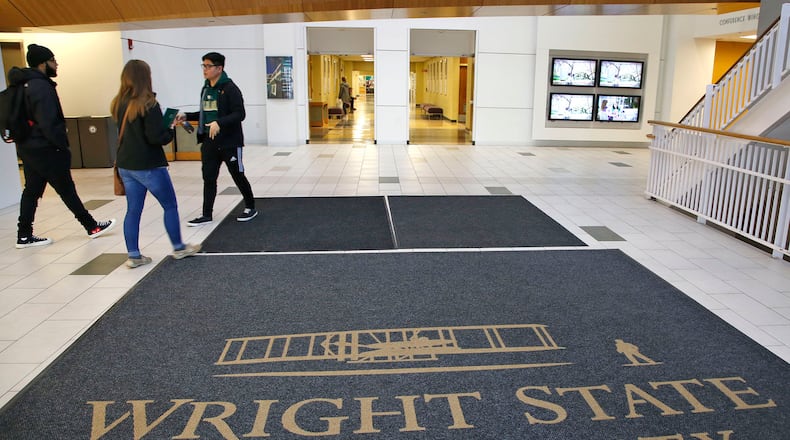Edwards also cautioned that a strike authorization vote does not mean that a strike is a certainty.
RELATED: Teamsters vote to authorize strike against Wright State University
“Please know that does not mean there will be a strike. In fact, the university and the Teamsters will return to the bargaining table to continue these critical negotiations on Tuesday, January 21,” wrote Edwards, who was named last year to succeed former President Cheryl Schrader, who retired.
In mid-December, Tom Bellew, chief steward for Teamsters Local 957, said members approved a strike authorization 84-6.
Members of the bargaining unit also voted to reject a state fact-finder’s report that sifted through five areas of contention remaining in contract talks the union and Wright State. That vote tally, also in December, was 87 votes to reject the report’s findings and three votes to accept them.
The local unit is obligated to return to bargaining with the university at least once more, Bellew told the Dayton Daily News last month. If no movement is achieved, then the union has the option to strike, he said at the time.
“We can always ask for more negotiation meetings, either side. But we do have the authorization to strike,” he said at the time. The hope is that the authorization will spur talks to a successful conclusion.
The bargaining unit represents about 113 of the university’s 2,600 full- and part-time employees. Edwards noted in her email.
Negotiations between the Teamsters and Wright State have been ongoing since last fall, she also wrote.
“The dialogue has been cordial, respectful, and productive, with 24 articles agreed upon and five issues outstanding,” the email states.
Added Edwards: “The Teamsters represent our tradesmen and women, our drivers, our groundskeepers, and the custodians of our classrooms and workspaces. They tirelessly tend to the needs of our university by working at all hours. They fix the problems that pop up in the night. They clear the snow to make our campus safe. They shepherd our students on Raider Ride. They are critical to the success of Wright State.”
Last February, Wright State trustees voted to approve a new contract with faculty members who struck the university for 20 days.
A message seeking comment was sent to Bellew Thursday.
About the Author

